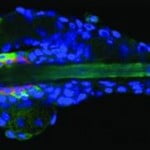
The team, from Yale University School of Medicine in New Haven, CT, reports the findings in the journal Scientific Reports.
Gary Desir, a professor of medicine and lead author of the study, says:
“Patient outcomes for pancreatic cancer are dismal, and we’re encouraged by these findings.”
Although relatively rare, pancreatic cancer is one of the deadliest cancers. In the US, it is the fourth leading cause of cancer-related death in both men and women. Over 46,000 Americans were diagnosed with the disease in 2014, and nearly 40,000 died of it.
Because pancreatic cancer is difficult to detect, it is rarely diagnosed in the early stages. While there has been some progress in treating it with chemotherapy, the disease is largely resistant to known therapies.
Consequently, the outlook for patients is currently very bleak; fewer than 5% live more than 5 years after diagnosis.
However, the new study raises hope that the discovery of renalase – a protein that is over-expressed in pancreatic cancer and that appears to be important for the growth of cancer cells – could lead to a much-needed new drug against the deadly disease.
Prof. Desir discovered renalase in his Yale lab in 2005, “while searching for a mechanism that could explain the very high incidence of heart disease in patients with failure,” he notes.
Many cancer cells make and release renalase
The researchers found the previously unknown protein was circulating at high levels in the bloodstream and named it renalase to reflect the fact the kidneys (renal) make a lot of it, and it also works as an enzyme (-ase) to metabolize adrenaline.
Fast facts about pancreatic cancer
- Cigarette smoking is the most important risk factor for pancreatic cancer
- Although rare, the disease is more common in men than in women
- Estimates suggest pancreatic cancer care costs over $2.5 billion a year in the US.
Learn more about pancreatic cancer
They also found that many cancer cells make and release renalase, which led them to wonder if it might serve as a biomarker for cancer.
One way to explore the function of a protein is to measure how highly it is expressed. This is done by making antibodies that switch it off and seeing how much antibody is required.
It was while they were experimenting with antibodies for renalase that the team found the protein functions as a growth factor fortumor cells, and this role is particularly important in pancreatic cancer.
When the researchers measured renalase in a group of patients with pancreatic ductal adenocarcinoma – the most common type of pancreatic cancer – they found that the higher the level of renalase expression in the tumors, the lower the rate of survival.
In lab tests on cultured pancreatic ductal adenocarcinoma cells, the researchers also found that inhibiting renalase signaling “decreased the viability” of the cells.
Also, using antibodies and other agents to silence renalase in mice implanted with human pancreatic cancer cells stopped tumor growth. The researchers found this was because blocking the protein interrupted the cell cycle in the tumor cells and caused them to commit cell suicide (apoptosis).
Prof. Desir concludes:
“We have discovered that pancreatic cancer cells misuse the renalase pathway to help them proliferate, and we have developed monoclonal antibodies of renalase that can kill pancreatic cancer cells and treat tumors in mice.”
Meanwhile, Medical News Today recently learned how a detailed genetic analysis led researchers to conclude that pancreatic cancer is four separate diseases, each with a different genetic trigger and requiring a different treatment.



